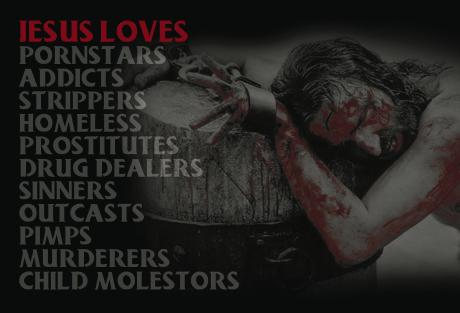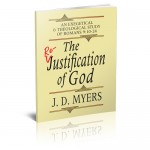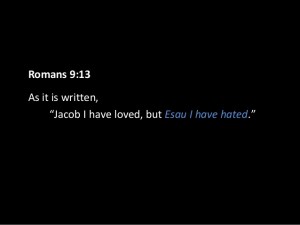 I wrote the second post for the “All About Eve” blog, and as I was writing it, I was pretty sure that most of what I was writing was … well … not quite what I wanted to say. But I published the post late last night anway, and went to bed.
I wrote the second post for the “All About Eve” blog, and as I was writing it, I was pretty sure that most of what I was writing was … well … not quite what I wanted to say. But I published the post late last night anway, and went to bed.
When I woke up this morning, I knew where I had gone wrong, and am now writing this post…
It is not that what I wrote was wrong; it just was not helpful. “Eve” was grappling with issues of control, and I basically told her that she needed to get in control of her desire to control.
That doesn’t make any sense does it?
When we try to control our desire to control, all we do is amplify our sense of control.
We often call it “letting go of control” but really, all we are doing is trying to gain more control over our life.
Here is the vicious cycle that happens: A person recognizes that they are trying to control others. They see this as bad and feel guilty about this control. So they try to “let go of control,” but when they fail at this also, they now feel guilty about the control AND feel guilty about failing to let go of control. Now they have a double whammy of guilt, which only exacerbates the problem.
You see? When we try to let go of control, we are trying to control control, and since we can neither control people and events, nor let go of control, we walk around in an ever-increasing state of guilt about how we are always trying to control others and how we wish we wouldn’t do this.
What is the fix for our issues with control?
Well, this is where I don’t have many answers. I know for a fact that I am still trying to exert great control in my own life, and I become quite fearful when I see that I cannot.
However, these wise words from Master Oogway to Shifu were helpful:
But here is what is interesting … If you have seen the movie, you know that when Shifu trained Thai Lang, he did exactly as Master Oogway has suggested. He believed in Thai Lang. But Thai Lang’s lust for power led him down a path toward darkness that Shifu never wanted nor intended. This is partly why Shifu is now trying to control the situation. But he cannot.
And I think that this is my problem as well. In the past, when I have believed in God for my future, and believed in the best of others, it has only led to great heartache and pain. Since I do not want to experience that pain and heartache again, I try to exert control over others in my life, and over life itself.
And lest we think we can disregard Master Oogway because he is only speaking some sort of Eastern mysticism crap, the Bible pretty much says the same thing. Passages like James 4;13-17, Proverbs 16:9, and Proverbs 19:21 all reveal that when it comes to control of what happens in our life, control is an illusion. Sure, as Shifu points out in the video clip above, there are a few things we can control, but in the grand scheme of our life, these few things are so insignificant, they amount to having hardly any control at all.

It is amazing when we sit back and begin to understand how little control we actually have in the world.
- I did not control the day I was born! /li>
- I did not control who my parents were!
- I did not control where I was born!
- I did not control the color of my skin, eyes and hair.
- I will not control when and where I step into eternity.
- I cannot control other drivers on the road.
- I cannot control what other people think about me.
- I cannot control my daughter’s future. (I can try to direct it…but I can’t control it!)
- I cannot control the weather.
- I cannot control how fast (or slow) my food gets to me in a restaurant.
- I cannot control how fast (or slow) the person in front of me is driving.
- I cannot control whether or not someone I know and loves prays to receive Christ.
- I cannot control the fact that my body is breaking down (I heal/repair MUCH slower at 40 than I did at 20!)
- I cannot control God by my religious performance.
Freedom, TRUE freedom, is understanding how out of control we are and then placing our faith in a God who has NEVER ceased to maintain control over what He has created.
So… to everyone who feels like you are out of control…it’s because YOU ARE!!! And, the more we try to control the more likely we are to live in complete rebellion to the one who is in control, who has all things in His hands and who constantly calls us to surrender to Him so that we can experience the joy of living under HIS Sovereignty rather than having to constantly discover that we have none of our own!
So If Control is an Illusion, How Can We Live Without Fear?
I don’t have all the answers on this, and as I stated above, this is all new to me as well. But I am learning, to the best of my ability, to just “enjoy the ride.” Life, it seems, is little more than a wild roller-coaster ride and nothing we can do will control the twists and turns of the track, the slow climbs up the hills or the terrifying plummets into the valleys. We may scream. We may cry. We may even throw up.
But after a couple time around the track, you begin to just enjoy it. Throw up your hands and laugh every time your stomach jumps into your chest.
How can we learn to do this? Because we know a few things:
- God is the builder of this roller coaster called life. No matter what, we won’t fall off the track.
- God loves us, our children, and our spouses MORE than we ever can.
- Jesus is riding in the seat next to us, and He’s hootin’ and hollerin’ with hands raised to the sky.
Based on these three things, we can KNOW that God will guide us and take care of us, and He will do the same for our children as well. Our life (and theirs) may not look the way we wanted or last as long as we think it should, but trying to control life or even trying to control our sense of control only causes us to lose all the enjoyment of life with God.
So don’t simply try to stop controlling people. Also stop trying to control your sense of control. Simply recognize that there is no control, and then sit back and enjoy the ride.
Fear not, for I have redeemed you; I have called you by name, you are mine. When you pass through the waters, I will be with you; and through the rivers, they shall not overwhelm you; when you walk through fire you shall not be burned, and the flame shall not consume you. For I am the Lord your God, the Holy One of Israel, your Savior … Fear not, for I am with you (Isaiah 43:1).



 As
As 


 Well, I’ve got news for you. If you have friends, you are already friends with sinners.
Well, I’ve got news for you. If you have friends, you are already friends with sinners.
 Paul writes a difficult statement in Romans 9:13:
Paul writes a difficult statement in Romans 9:13:
 How can we choose between the two views above? Does God hate Esau and Edom, or does He simply love Edom less than He loves Israel?
How can we choose between the two views above? Does God hate Esau and Edom, or does He simply love Edom less than He loves Israel?

